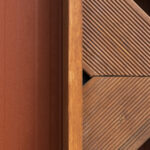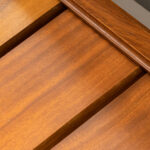
Plywood is a versatile building material that has become increasingly popular over the years. It is used in a wide range of applications, including furniture, cabinets, flooring, and roofing. However, not all plywood is created equal. When purchasing plywood in Bangalore, there are several factors that you need to consider to ensure that you get the right product for your project. In this article, we will explore 10 factors that you should keep in mind when buying plywood in Bangalore.
Know about Plywood
Plywood is an engineered wood product that is made by gluing together several thin layers of wood veneers. It is a durable and strong material that has a wide range of applications. However, not all plywood is created equal, and it is important to consider several factors before making a purchase.
Here are the 10 factors that you should keep in mind when buying plywood in Bangalore.
Type of Plywood
When choosing plywood for your project, consider the type of plywood required. Softwood plywood is made from softwood species such as pine, fir, and spruce. It is typically used in construction for roofing, flooring, and walls. Hardwood plywood, on the other hand, is made from hardwood species such as maple, oak, and birch. It is generally stronger and more durable than softwood plywood and is suitable for furniture, cabinetry, and decorative paneling. Marine plywood is another type of plywood that is waterproof and ideal for outdoor applications such as boats and docks.

Plywood Grade
Plywood is graded based on its appearance, strength, and durability. The grading system varies by country, but in India, plywood is typically classified as MR (Moisture Resistant), BWR (Boiling Water Resistant), and BWP (Boiling Water Proof). MR plywood is suitable for indoor use, while BWR plywood is suitable for outdoor use and can withstand some exposure to water. BWP plywood is the highest grade and is waterproof, making it ideal for marine and outdoor applications.
Plywood Thickness
The thickness of plywood is an important factor to consider when buying plywood in Bangalore. Plywood is available in several thicknesses, ranging from 3mm to 25mm. The thickness you choose will depend on the application you have in mind. Thicker plywood is ideal for applications that require strength and durability, while thinner plywood is suitable for applications that require flexibility.
Size of Plywood Sheets
Plywood sheets are available in several sizes, ranging from 4×8 feet to 8×4 feet. The size you choose will depend on the size of your project. It is important to choose a size that will minimize waste and reduce the number of cuts required.
Core Material
The core material of plywood is an important factor to consider when making a purchase. The most common core materials include poplar, hardwood, and birch. Poplar is a cost-effective option that is ideal for non-structural applications, while hardwood and birch are more expensive and are suitable for structural applications.
Moisture Resistance
Moisture resistance is an important factor to consider when buying plywood in Bangalore. Plywood that is not moisture-resistant can warp, swell, and rot when exposed to moisture. Moisture-resistant plywood is ideal for applications that require resistance to moisture, such as bathroom and kitchen cabinets.
Formaldehyde Emission
Formaldehyde is a toxic chemical that is found in many building materials, including plywood. When buying plywood in Bangalore, it is important to choose plywood that has low formaldehyde emissions. Look for plywood that is labeled as “low VOC” or “CARB Phase 2 compliant.”
Brand Reputation
The reputation of the brand is an important factor to consider when buying plywood in Bangalore. Choose a brand that has a good reputation for producing high-quality plywood. You can research different brands online and read reviews from other customers to get an idea of the brand’s reputation.
Price
While price is a crucial factor to consider, it should not be the only factor. Avoid purchasing cheap plywood, as it may be of lower quality and may not last long. Compare prices and ensure you are getting good value for your money. It’s better to pay a little more for high-quality plywood that will last longer and perform better.
Customer Service

Choose a supplier or retailer that offers good customer service and after-sales support. This can be helpful if you encounter any issues with your plywood purchase, such as defects or damage during transport. Look for a supplier who is willing to answer your questions and provide guidance on selecting the right plywood for your needs. They should also have a return policy in case you need to return or exchange the plywood.
Conclusion
When buying plywood in Bangalore, it is important to consider several factors to ensure that you get the right product for your project. The type of plywood, grade, thickness, size of sheets, core material, moisture resistance, formaldehyde emission, brand reputation, and price are all important factors to consider. By taking these factors into account, you can ensure that you get the right plywood for your project.
FAQs
Marine plywood is ideal for applications that require resistance to water, but it may not be necessary for all applications. Moisture-resistant plywood may be sufficient for applications that are not exposed to water for extended periods.
Softwood plywood is made from softwood species such as pine, fir, and spruce, while hardwood plywood is made from hardwood species such as oak, maple, and birch. Hardwood plywood is typically more expensive and has a better appearance than softwood plywood.
The best thickness for plywood flooring depends on several factors, including the size of the room, the type of flooring, and the subfloor. In general, a thickness of 5/8 inch to 3/4 inch is recommended for plywood flooring.
Formaldehyde emission can be a health concern, particularly for people with respiratory problems or allergies. Look for plywood that has low formaldehyde emissions to reduce the risk of health problems.
Plywood can be used for outdoor applications, but it is important to choose plywood that is specifically designed for outdoor use. Look for plywood that is labeled as "exterior grade" or "marine grade" for outdoor applications.



